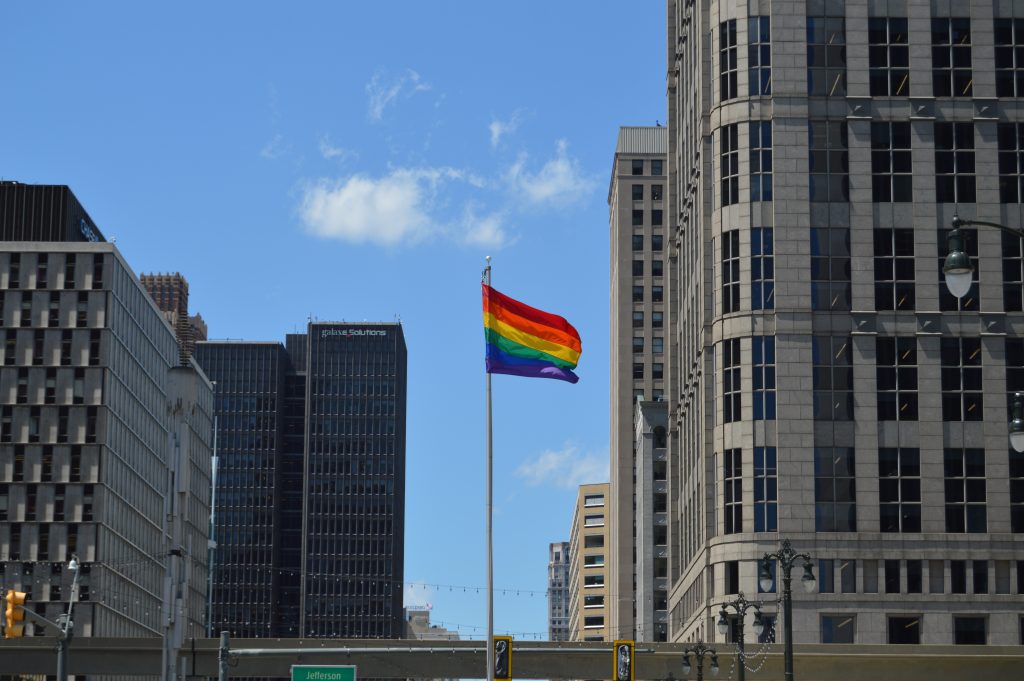Supreme Court Guarantees LGBTQ Workplace Protections Under Civil Rights Act
The case partially originated in Southeast Michigan when Aimee Stephens, a transgender woman, sued after being fired from her job at a Garden City funeral home.

A pride flag waves over Detroit.
In a case that has roots in Metro Detroit, the U.S. Supreme Court finds that people cannot be fired due to their sexual orientation or gender identity.
“While this is an important win as it relates to workplace discrimination, discrimination still exists in many forms that impacts LGBTQ individuals.” — Erin Knott, Equality Michigan
The landmark civil rights decision found in a 6-3 decision that LGBTQ workers have the same protections granted under the 1964 Civil Rights Act. Part of the combined case originated with Aimee Stephens, who worked for a Garden City Funeral home. After coming out as transgender, she was fired. Stephens died earlier this year.
The owner of the funeral home that employed Stephens argued that forcing him to keep Stephens as an employee would be a violation of religious freedom.
Erin Knott, Executive Director of Equality Michigan – an LGBTQ advocacy organization — says the high court has said there are limits to using religious freedom as a defense.
Click on the player above to hear Equality Michigan’s Erin Knott on today’s SCOTUS decision affirming workplace protections for LGBTQ+ employees.
“When it comes to firing somebody just simply because of who they are or who they love – that’s not their right,” she says. “And far too often we see folks using religion as a way to defend harming another individual.”
Additional Protections
She says there is still much more work that needs to be done.
“While this is an important win as it relates to workplace discrimination, discrimination still exists in many forms that impacts LGBTQ individuals,” Knott says. “Housing and public accommodations come to mind.”
A bill was introduced in the state legislature last year that would make it illegal to discriminate against LGBTQ individuals when it comes to housing. So far that bill hasn’t gained traction in the Republican-led house and senate.
A group called Fair and Equal Michigan is also gathering signatures to add civil rights protections to Michigan state law, but faced hurdles after moving online in response to the COVID-19 pandemic. The group needs to collect 340,042 signatures.
It’s important “to ensure that we have absolute certainty that’s not subject to a particular judge or how they decide to interpret those words,” says Jay Kaplan with the ACLU. “We want those explicit words in our laws.”
Trusted, accurate, up-to-date
WDET is here to keep you informed on essential information, news and resources related to COVID-19.
This is a stressful, insecure time for many. So it’s more important than ever for you, our listeners and readers, who are able to donate to keep supporting WDET’s mission. Please make a gift today.

